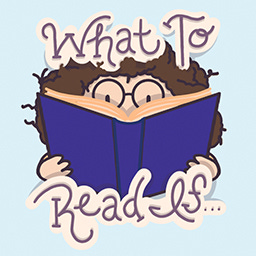On Rejection: Elizabeth Held
The author of What To Read If joins us to talk about moving past rejections in our first interview ever!
Welcome to our new interview series, On Rejection!
I love interviewing people but haven’t had much opportunity to do so since I stopped freelancing a couple of years ago. I wanted to start interviewing people again because I want to get other people’s perspectives on rejection. I experience it all the time (writer’s life, baby!) but I know other people have more nuance to offer. Hopefully, this series will make rejection feel a little less scary for people in the future.
So without further ado, here is our first interview with Elizabeth Held, author of What To Read If. Let me know what you think of the interview by leaving a comment, and don’t forget to check out Elizabeth’s work!

Tell us about a time you experienced rejection.
I’m trying to get a book published right now, which any writer can tell you is a study in rejection. I’m in the querying phase — I have a book proposal and am seeking an agent — and my mood fluctuates with my inbox.
Agent asks for a full submission? I’m elated. Agent sends a form rejection? I’m bummed. Agent sends lovely, kind email saying how much they love the project, but they’re just not the right fit? I’m devastated. I’ve found the rejections that are the closest to “yeses” are the ones that sting the most.
Over the summer, I fell into a funk after an agent I had some good back-and-forth on decided the project wasn’t for her. I considered giving up on the project altogether, but after many hours of tears (and more than a few pints of ice cream), I decided to revise it one more time before moving on to a new project.
How are you getting over it?
The same week I had decided to give up on my project, I was scheduled to attend Leigh Stein’s webinar on conceptualizing your book. I thought about skipping it, but I’d already paid for it and figured it might help me figure out what my next project should be.
Instead, the process of talking about my book proposal out loud with intelligent people helped me identify ways I could strengthen it. I went from feeling devastated to energized.
I still have a lot of work in front of me — and there’s no guarantee the revised proposal will go anywhere — but I’m at least trying again.
If you could go back and tell yourself anything right before or after that experience, what would you say?
I have to remind myself that publishing is an extremely subjective business almost every day. Just because I’m not having luck doesn’t mean I’m talentless. (At least I hope it doesn’t.) Unfortunately, this is also one of those things that’s easy to say but harder to actually believe.
I also try to remind myself that this is all part of the process and that, in a way, rejections are a good thing. They mean I’m putting myself out there.
What are you working on now?
In addition to revising my book proposal, I write a book recommendation newsletter, What To Read If. Each week, I offer subscribers three picks based on what’s going on in the world. I’ve always thought that finding the right book at the right time is a kind of magic — and I hope my newsletter gives people that feeling.
Are there any books about getting over rejection that you’d recommend?
It’s not explicitly about rejection, but my go-to is Brené Brown’s Daring Greatly. In it, Brown, a research professor at the University of Houston, argues that it takes courage and bravery to keep working in the face of rejection.
The title comes from a Theodore Roosevelt quote: “It is not the critic who counts; not the man who points out how the strong man stumbles, or where the doer of deeds could have done them better. The credit belongs to the man who is actually in the arena, whose face is marred by dust and sweat and blood; who strives valiantly; . . . who at the best knows in the end the triumph of high achievement, and who at worst, if he fails, at least fails while daring greatly.”
When I’m at a low point, I tell myself that at least I’m in the arena trying and that I’ll regret it more if I’m not.
Check out Elizabeth’s publication What To Read If and follow her on Twitter






Rejection really is part of the story of writing--good to look at it squarely (and then give it a Big Kick!) When I downsized I tossed my collection of letters--it was going to take up way too much space in the moving van!
Thanks Valorie!